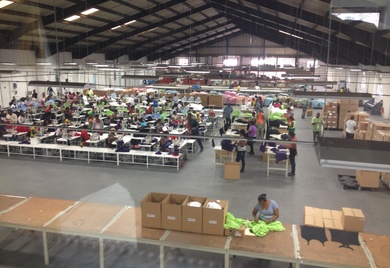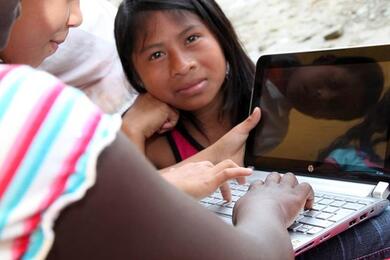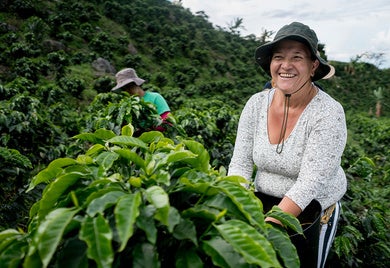
Approaching infrastructure from all angles: sustainable opportunities in Latin America and the Caribbean
“Please see if it is feasible to create these roads so that they will pay for themselves,” famously declared Franklin Delano Roosevelt, the United States’ 32nd president. In Latin America and the Caribbean, such a boundless, timeless statement holds true for the majority of today’s infrastructure projects. An IDB study recently affirmed that investments in infrastructure provide financial returns upwards of 70 percent. But in the region and across the globe, the goal of infrastructure should not only be financial profitability. Given the long life of infrastructure assets and their importance for country competitiveness, the social and environmental rationale for high-quality, reliable and sustainably constructed infrastructure is equally captivating.

Renewable Energy: Approaching the tipping point
Renewable Energy: Approaching the tipping point Imagine pushing a cumbersome and heavy ball up a steep incline with the goal of arriving at the top and having it roll down the other side by itself to a final destination. The initial time invested and physical strength exerted would seem worthwhile if you could just arrive at the summit – the tipping point. This is oftentimes the feeling in the renewable energy sector in Latin America and the Caribbean (LAC). Although there is increasing activity in renewable projects and frameworks, developers, investors, engineers and others in the relatively nascent industry in LAC seem to be trudging up a hill, sweating and hoping that the industry can soon move itself without assistance. http://vimeo.com/65930811

Managing risks in an era of stakeholder capitalism
In 2020, firms will be judged less on how they respond to crises and more on how they anticipate them. Engaging stakeholders through technology is an important first step.

What is a B-bond?
With a nearly $200 billion a year financing gap, it is virtually impossible for the development banks in Latin America and the Caribbean to close it alone. However, there is good news.

Can the private sector feed the world?
To feed the world by 2050, global food production must increase 60 percent on as little as 12 percent more arable land. This will require avoiding environmentally-sensitive areas while planning for the unexpected events of climate change. Increased floods, droughts, storms, heat and evolving insect resistance are changing how the world farms. Food security and agriculture are part of an ongoing dialogue at this year’s World Economic Forum Annual Meeting in Davos, where experts are identifying ways to replicate what works and tackle what doesn’t.

Three surprising habits of highly productive women in the private sector
In Argentina, 61 percent of mothers work outside the home. In Chile, the US and Mexico, those numbers are 59 percent, 57 percent and 42 percent, respectively. Globally, that percentage is growing. As I prepare to join these women after the birth of my second child, I know I must find ways to be more productive and disciplined in my corporate environment. To tackle this, I spent my last weeks of maternity leave seeking the advice of the most highly productive women in the private sector I know. Their surprising answers on work-life balance, professional success and doing more with less offer tools for women, men and companies more broadly.